Related Research Articles
Polari is a form of slang or cant historically used in Britain by some actors, circus and fairground performers, professional wrestlers, merchant navy sailors, criminals and sex workers, and particularly among the gay subculture. There is some debate about its origins, but it can be traced to at least the 19th century and possibly as early as the 16th century. Polari has a long-standing connection with Punch and Judy street puppeteers, who traditionally used it to converse.

In & Out is a 1997 American comedy film directed by Frank Oz, written by Paul Rudnick, and starring Kevin Kline, Tom Selleck, Joan Cusack, Matt Dillon, Debbie Reynolds, Bob Newhart, Shalom Harlow, and Wilford Brimley. Cusack was nominated for the Academy Award for Best Supporting Actress for her performance.

The Waterboy is a 1998 American sports comedy film directed by Frank Coraci. It was written by Adam Sandler as well as Tim Herlihy and produced by Robert Simonds and Jack Giarraputo. Sandler also stars as the title character while Kathy Bates, Fairuza Balk, Henry Winkler, Jerry Reed, Lawrence Gilliard Jr., Blake Clark, Peter Dante, and Jonathan Loughran play other characters.
Achy Obejas is a Cuban-American writer and translator focused on personal and national identity issues, living in Benicia, California. She frequently writes on her sexuality and nationality, and has received numerous awards for her creative work. Obejas' stories and poems have appeared in Prairie Schooner, Fifth Wednesday Journal, TriQuarterly, Another Chicago Magazine and many other publications. Some of her work was originally published in Esto no tiene nombre, a Latina lesbian magazine published and edited by tatiana de la tierra, which gave voice to the Latina lesbian community. Obejas worked as a journalist in Chicago for more than two decades. For several years, she was also a writer in residence at the University of Chicago, University of Hawaii, DePaul University, Wichita State University, and Mills College in Oakland, California. She also worked from 2019 to 2022 as a writer/editor for Netflix on the bilingual team in the Product Writing department.

B.A.P.S is a 1997 American female buddy comedy film directed by Robert Townsend and starring Halle Berry, Natalie Desselle, and Martin Landau. The film was written by Troy Byer and was her first screenplay. The film received largely negative reviews from critics, although it has since been considered a cult classic, especially for black Hollywood. In total it earned $7.3 million at the box office worldwide.
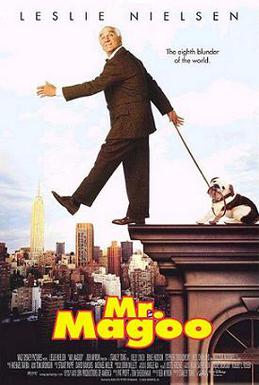
Mr. Magoo is a 1997 American slapstick comedy film directed by Hong Kong film veteran Stanley Tong and written by Pat Proft and Tom Sherohman. Based on UPA's cartoon of the same name, it was produced by Walt Disney Pictures, and stars Leslie Nielsen as the title character, alongside Kelly Lynch, Matt Keeslar, Nick Chinlund, Stephen Tobolowsky, Ernie Hudson, Jennifer Garner and Malcolm McDowell.
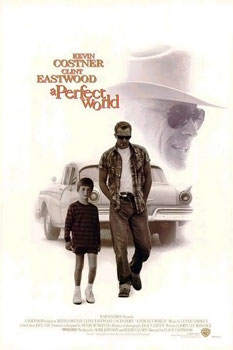
A Perfect World is a 1993 American thriller crime drama film directed by Clint Eastwood. It stars Kevin Costner as an escaped convict who takes a young boy hostage and attempts to escape on the road with the child. Eastwood co-stars as a Texas Ranger in pursuit of the convict.

Judy Lynn Tenuta was an American comedian, actress, and comedy musician. She was known for her whimsical and brash persona of "The Love Goddess", mixing insult comedy, observational humor, self-promotion, and bawdy onstage antics. Throughout her career, Tenuta built a niche but devoted following, particularly among members of the LGBTQ community. Tenuta wrote two comedy books, and received two nominations for the Grammy Award for Best Comedy Album.
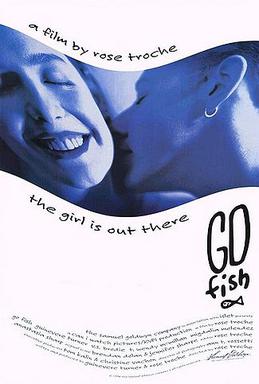
Go Fish is a 1994 American comedy drama film written by Guinevere Turner and Rose Troche and directed by Rose Troche. It premiered at the Sundance Film Festival in 1994, and was the first film to be sold to a distributor, Samuel Goldwyn, during that event for $450,000. The film was released during Pride Month in June 1994 and eventually grossed $2.5 million. The film was seen as groundbreaking for celebrating lesbian culture on all levels, and it launched the career of director Troche and Turner. Go Fish is said to have proved the marketability of lesbian issues for the film industry.
Michelle Ehlen is an American film director, producer, screenwriter, and actress best known for her comedic feature Butch Jamie.
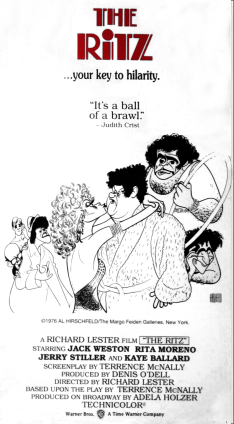
The Ritz is a 1976 British-American comedy farce film directed by Richard Lester based on the 1975 play of the same name by Terrence McNally. Actress Rita Moreno – who had won a Tony Award for her performance as Googie Gomez in the Broadway production – and many others from the 1975 original cast, such as Jack Weston, Jerry Stiller, and F. Murray Abraham, reprised their stage roles in the film version. Also in the cast were Kaye Ballard and Treat Williams. The film, Jack Weston, and Rita Moreno all received Golden Globe nominations in the comedy category. It opened to mixed reviews.

American actress and singer Judy Garland (1922–1969) is widely considered as a gay icon. The Advocate has called Garland "The Elvis of homosexuals". The reasons frequently given for her standing as an icon among gay men are admiration of her ability as a performer, the way her personal struggles seemed to mirror those of gay men in America during the height of her fame, and her value as a camp figure. Garland's role as Dorothy Gale in The Wizard of Oz is particularly known for contributing to this status. In the 1960s, when a reporter asked how she felt about having a large gay following, Garland replied, "I couldn't care less. I sing to people!"

Janet Jackson is an American pop and R&B singer and actress. Jackson garnered a substantial gay following during the 1990s as she gained prominence in popular music. Recognized as a long-term ally of the LGBTQ community, Jackson received the GLAAD Media Award for Outstanding Music Album for her Grammy Award-winning sixth studio album The Velvet Rope (1997), which spoke out against homophobia and embraced same-sex love. In 2005, Jackson received the Humanitarian Award from the Human Rights Campaign and AIDS Project Los Angeles in recognition of her involvement in raising funds for AIDS Charities and received the Vanguard Award at the 19th Annual GLAAD Media Awards in 2008. In June 2012, Jackson announced she was executive producing a documentary on the lives of transgender people around the world titled Truth, saying she agreed to sign on to help stop discrimination against the transgender community.

Bride of Chucky is a 1998 American black comedy slasher film written by Don Mancini and directed by Ronny Yu. The fourth installment in the Child's Play franchise, it stars Jennifer Tilly, Brad Dourif, John Ritter, Katherine Heigl, and Nick Stabile. Unlike the first three films, Bride of Chucky takes a markedly humorous turn towards self-referential parody. It also departs from the Andy Barclay storyline of the first three films, focusing mainly on series villain Chucky, a doll possessed by a serial killer, and his former lover and accomplice Tiffany, whose soul is also transferred into a doll.

"Por Debajo de la Mesa" is a song written by Armando Manzanero and performed by Mexican recording artist Luis Miguel. Arranged by Bebu Silvetti, it was one of the two original compositions written for Miguel's fifteenth studio album Romances. It was released as the lead single from the album on 15 July 1997 and it became his thirteenth number-one single on the Billboard Hot Latin Songs chart in the United States. The music video features Miguel performing at a fine-dining restaurant in New York City.
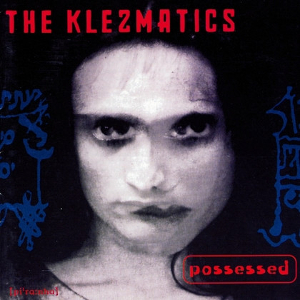
Possessed is an album by the American klezmer group the Klezmatics, released in 1997.
Joan Dickinson is a contemporary American artist, writer, director, curator, and educator. Her creative practice combines visual and performance art, photography, writing, farming and environmental restoration, astrology, ceremony, and palliative care. Dickinson holds a master’s in performance from Columbia College and a doctorate (2012) from the Literary Arts program at the University of Denver.
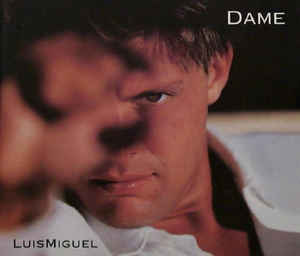
"Dame" is a song written by Alejandro Lerner and Kiko Cibrian and performed by Mexican recording artist Luis Miguel. It was released as the lead single from his eleventh studio album Nada Es Igual... on 15 July 1996 to radio stations. "Dame" was recorded at the Record Plant studio in Los Angeles, California. The song incorporates R&B and hip-hop influences. The music video for "Dame" was directed by Marcus Nispel and filmed at the Mojave Desert in California and was nominated Video of the Year. It received mixed reactions from music critics who felt that the track sounded too similar to his previous pop recordings. "Dame" peaked at number two and one on the Billboard Hot Latin Songs and Latin Pop Songs charts in the United States and received a BMI Latin Award in 1998.
Marvin Tate is an American artist, poet, and singer-songwriter from Chicago.

Una Mujer Como Yo is an album by the Cuban musician Albita, released in 1997.
References
- 1 2 3 4 Woods, Mark (13 April 1997). "Butch Camp". Variety . Retrieved 5 October 2022.
- 1 2 3 Lazare, Lewis. "Who’s Going to Butch Camp?/Cabaret Catches On/ Art 1997 Chicago’s Rebound," Reader (Chicago, IL), Thursday, June 5, 1997. Retrieved October 7, 2022.
- 1 2 Savlov, Marc (3 October 1997). "Butch Camp". The Austin Chronicle . Retrieved 5 October 2022.
- ↑ Alspector, Lisa (3 October 1997). "Butch Camp". Chicago Reader . Retrieved 5 October 2022.
- ↑ Van Vleck, P. (1 May 1999). "Butch Camp". The Video Librarian. Retrieved 5 October 2022.
- ↑ Obejas, Achy (13 June 1997). "OFF TO `BUTCH CAMP' GAY SEX FARCE CAN BE FUNNY BUT SENDS CONFUSED MESSAGES". Chicago Tribune . Retrieved 5 October 2022.
- ↑ Rubinkowski, Leslie (15 August 1997). "CELEBRATING HOMOPHOBIA `BUTCH CAMP' IS BAD CAMP". Pittsburgh Post-Gazette . Retrieved 5 October 2022.
- ↑ Sheehan, Henry (1 August 1997). "The only tough thing about `Butch Camp' is watching it". The Orange County Register . Retrieved 5 October 2022.
- ↑ Dempsey, Laura (7 November 1997). ""CAMP' ADEQUATELY DESCRIBES THIS OUTING". Dayton Daily News . Retrieved 5 October 2022.
- ↑ Thomas, Kevin (1 August 1997). "Movie Review; Standing Up to Bullies: a Tedious Route". Los Angeles Times . Retrieved 5 October 2022.